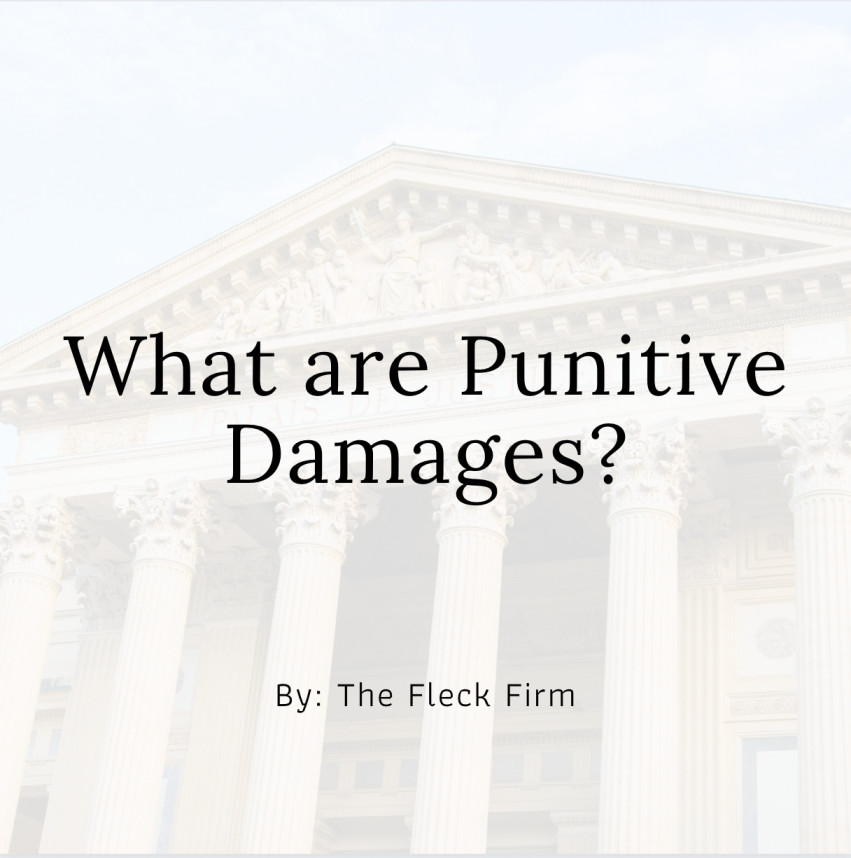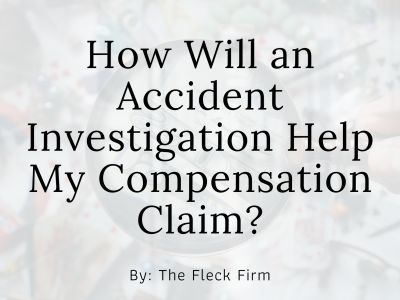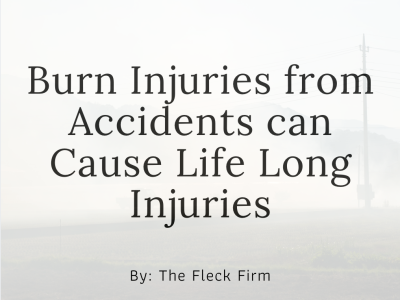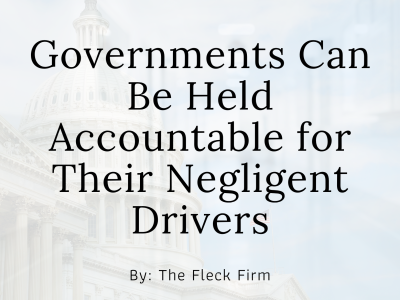Most damages in personal injury cases compensate you for your losses, including your pain, suffering, wages, and medical bills. Punitive damages are rarely awarded, but they could be part of your case. They’re based on the defendant’s behavior leading up to the accident, not on what happened to you.
How Does an Attorney Help?
Tyler Fleck helps his clients get all the compensation they deserve. Depending on what happened, this may include punitive damages, which may greatly increase a jury verdict. If you’re injured because of an accident caused by another, call his office at (270) 446-7000 to schedule a free consultation.
Punitive damages punish dangerous behavior and discourage the party sued (the defendant) and others from doing the same thing. Nearly all personal injury cases are based on proving a defendant’s mistake caused an accident that resulted in injuries.
Punitive damages require extreme indifference to the consequences to another person or intentional acts. It can be the difference between going 65 mph and 100 mph on a wet highway and causing a crash. It’s a much higher level of danger while not caring what happens to others.
Other attorneys take contingent fees of 33% to 50% of your settlement.
We want you to keep more of your money.
Our contingent fee is only 30% on cases settled prior to filing suit.
When are Punitive Damages Available in a Kentucky Personal Injury Case?
Under state statute, a plaintiff (the party filing the suit) can collect punitive damages when they prove by “clear and convincing evidence” that the defendant acted toward the plaintiff with “oppression, fraud or malice.”
You can be successful with a negligence claim when you prove it was more likely than not the defendant was negligent by causing your accident and injuries. You have a much higher standard of proof with punitive damages because you need to show “clear and convincing evidence” the defendant went beyond simple negligence.
The statute provides definitions:
- Oppression: Conduct shows the defendant intends to subject you to “cruel and unjust hardship.” You would need to establish the defendant intentionally harmed you
- Fraud: An intentional “misrepresentation, deceit, or concealment” of material facts known to the defendant, made with the intent to injure you. This could come into play if someone sold you a product knowing it was dangerous, even if you used it as directed
- Malice: This is conduct shows the defendant specifically intends to cause you an injury or it was carried out with “flagrant indifference” to your rights, knowing it will result in death or bodily harm. This could cover a trucking company that decides to severely cut back or end maintenance on trucks to save money, indifferent to the fact they could cause accidents, injuries, or deaths
The statute limits punitive damages claims when you’re asking for them from an employer by claiming they’re responsible for an employee’s actions (and inactions). Generally, you can file a negligence lawsuit against an employer if an employee makes a mistake and causes injuries if the employer acted negligently in hiring, training, supervising the employee, or providing them with a dangerous tool or vehicle.
Under the statute, the employer is only liable for punitive damages when it “authorized or ratified or should have anticipated the conduct in question.” If the employer knew the employee engaged in hazardous actions (like driving drunk on the job or getting speeding tickets in a company vehicle) but didn’t take steps to discourage them or hold the employee accountable, punitive damages may be awarded.
What are Examples of Punitive Damages Awards?
These awards can come in a wide range of cases. They can be business disputes, product liability, and accident cases. Here are some instances where punitive damages were awarded:
- Kentucky’s most famous neighbor dispute included a lawsuit where Sen. Rand Paul was awarded punitive damages in an assault and battery case against Rene Boucher. Boucher, upset at brush piled up along their property line, ran at Paul, tackled him from behind without warning, and drove him to the ground, breaking six ribs. Paul was awarded $375,000 in punitive damages in a 2019 trial. It was upheld on appeal
- A former Newton County, Georgia, jail inmate won a judgment against a former Sheriff’s Office jailer in a 2019 federal lawsuit filed due to an attack in his cell that left him badly injured. Shermaine Carlisle was sued for his role in an assault by three inmates on Sean Hall. Carlisle conspired with the attackers and knowingly allowed them access to Hall’s cell so he could be attacked. He was awarded $450,000 in punitive damages, according to the Covington News
- A Pennsylvania judge ruled in 2013 that truck driver Sukhwinder Singh and his employer, Sukhchan Singh, would pay punitive damages after a tractor-trailer crash left two dead. Their truck hit Singh’s truck, killing one immediately. The other died later in a hospital, reports Courthouse News Service. Sukhwinder Singh was on one highway at night when he missed a turn onto another highway. He stopped the truck and backed up, without using flashers or checking for traffic. The judge stated he operated the truck “in a reckless manner that created a high probability of serious harm to decedent. Defendant Sukhchan Singh showed disregard for the health and safety of decedent by knowingly permitting an inexperienced driver to operate the truck.”
Each case is unique, and even if the facts are similar, one judge or jury may find punitive damages are appropriate while another may not.
Take the Next Step – Call Tyler Fleck
Tyler Fleck is an experienced attorney who can help you after an accident leaves you injured. Call him at (270) 446-7000 to schedule a free consultation. We’ll discuss the accident, your injuries, the law, whether punitive damages may be part of your case, and your best options to proceed. Insurance companies have lawyers. You should have one too.








